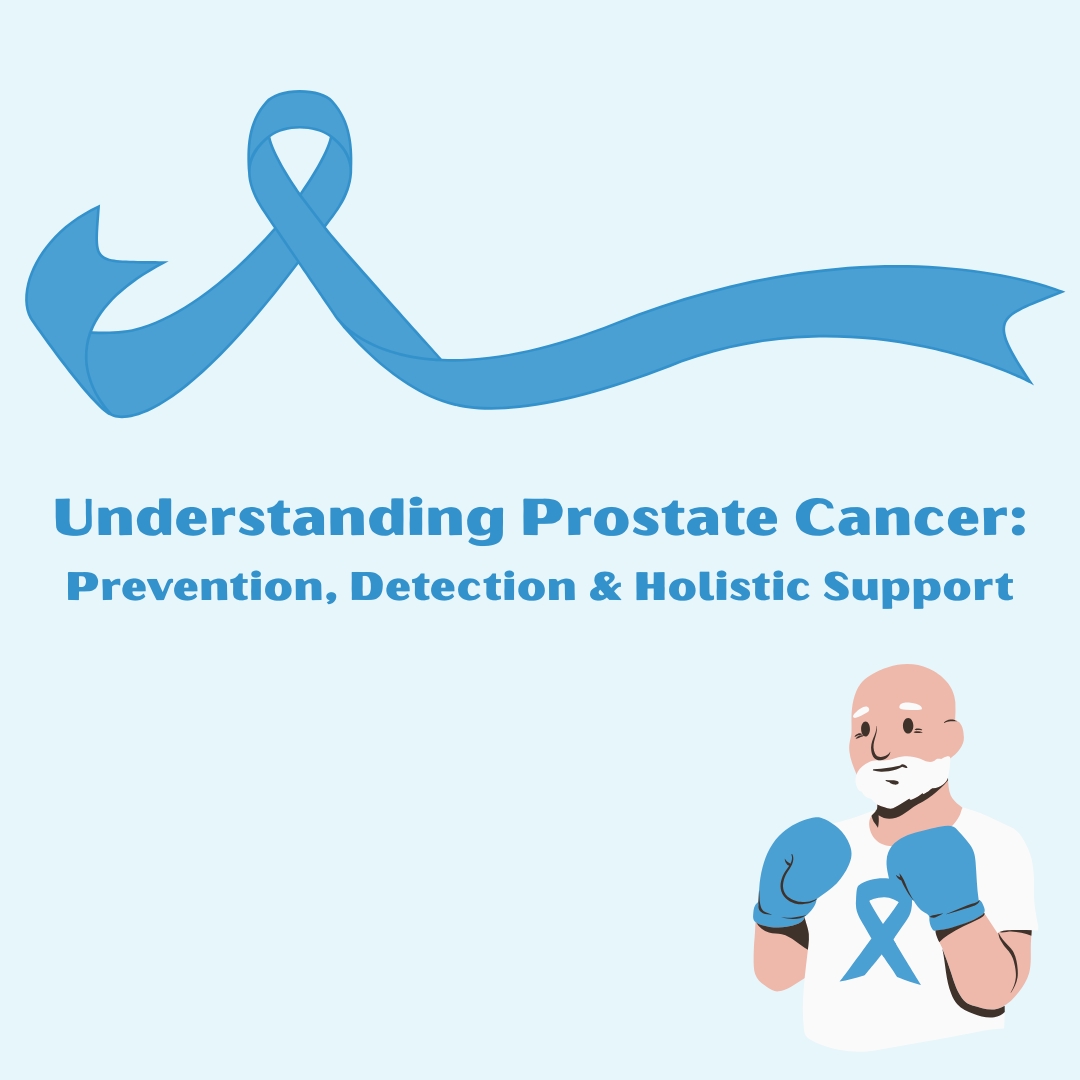Understanding Prevention, Detection & Holistic Support
Prostate cancer is now one of the most commonly diagnosed cancers in men across the globe. As rates continue to rise—particularly in men over 50—awareness, early detection, and a whole-body approach to wellbeing have never been more important.
According to the World Health Organisation (WHO), prostate cancer ranks as the second most frequent cancer among men worldwide. The rising numbers are linked to an ageing population, improved diagnostic techniques, and shifts in diet and lifestyle.
While genetics play a part, factors such as environmental toxins, sedentary behaviour, and poor nutrition are also known contributors.
Recognising the Symptoms
In its early stages, prostate cancer often develops silently. That said, the following symptoms should never be ignored:
- Frequent urination, especially during the night
- Weak or interrupted urine flow
- Difficulty starting urination
- Pain or burning during urination
- Blood in the urine or semen
- Erectile dysfunction
- Discomfort in the pelvic region or lower back
Men over 50, and those with a family history of prostate cancer, are advised to undergo routine check-ups.
Conventional Diagnosis & Treatment
Most men begin their diagnostic journey with a PSA (Prostate-Specific Antigen) blood test and a digital rectal examination. If abnormalities are found, a biopsy is usually recommended. However, it’s worth noting that biopsies do carry some risk—including infection, bleeding, and in rare cases, the potential to spread cancer cells.
Advanced imaging techniques like multi-parametric MRI offer a safer, non-invasive alternative that may be more appropriate in certain cases.
Standard Treatment Options:
- Surgery (Prostatectomy)
- Radiation Therapy
- Hormone Therapy
- Chemotherapy (in advanced cases)
While often effective, these treatments can come with side effects such as urinary incontinence and sexual dysfunction.
Holistic Support & Complementary Therapies
Integrating holistic therapies can help reduce treatment side effects, support emotional wellbeing, and enhance overall outcomes.
1. Nutrition for Prostate Health
A prostate-supportive diet is naturally anti-inflammatory and antioxidant-rich.
Recommended Foods:
- Cruciferous vegetables (broccoli, kale, Brussels sprouts)
- Tomatoes (rich in lycopene)
- Green tea
- Pomegranate juice
- Fatty fish (omega-3 sources)
- Pumpkin and flaxseeds
Foods to Limit or Avoid:
- Red and processed meats
- High-fat dairy
- Sugary and processed foods
- Excess alcohol
2. Targeted Supplementation
Always speak to a qualified practitioner before starting supplements. Some promising options include:
- Lycopene – antioxidant support
- Zinc – promotes prostate function (in moderation)
- Vitamin D3 – supports immune function
- Saw Palmetto – may aid urinary health
- Curcumin – anti-inflammatory properties
- Quercetin – supports cellular integrity
3. Advanced Therapies for Recovery & Support
- PEMF Therapy (Pulsed Electromagnetic Field)
Supports cellular repair, reduces inflammation, and promotes recovery following treatment. - Red Light Therapy (Infrared/Near-Infrared)
Helps enhance mitochondrial function, reduces oxidative stress, and stimulates healing. - Oxygen Therapy (e.g., Hyperbaric Oxygen)
Increases oxygen levels in the body, which may slow cancer progression and promote healing.
Your Next Step
Prostate cancer requires more than just a medical response—it demands a whole-person approach. Alongside medical care, adopting a healthier lifestyle and exploring supportive therapies can empower men to take charge of their wellbeing.
Prevention and early action are vital. Schedule regular check-ups, eat clean, and work with professionals to build a personalised, holistic care plan.
Disclaimer: This blog is for educational purposes only and should not replace professional medical advice. Always consult your healthcare provider before starting any new treatment or supplement.


